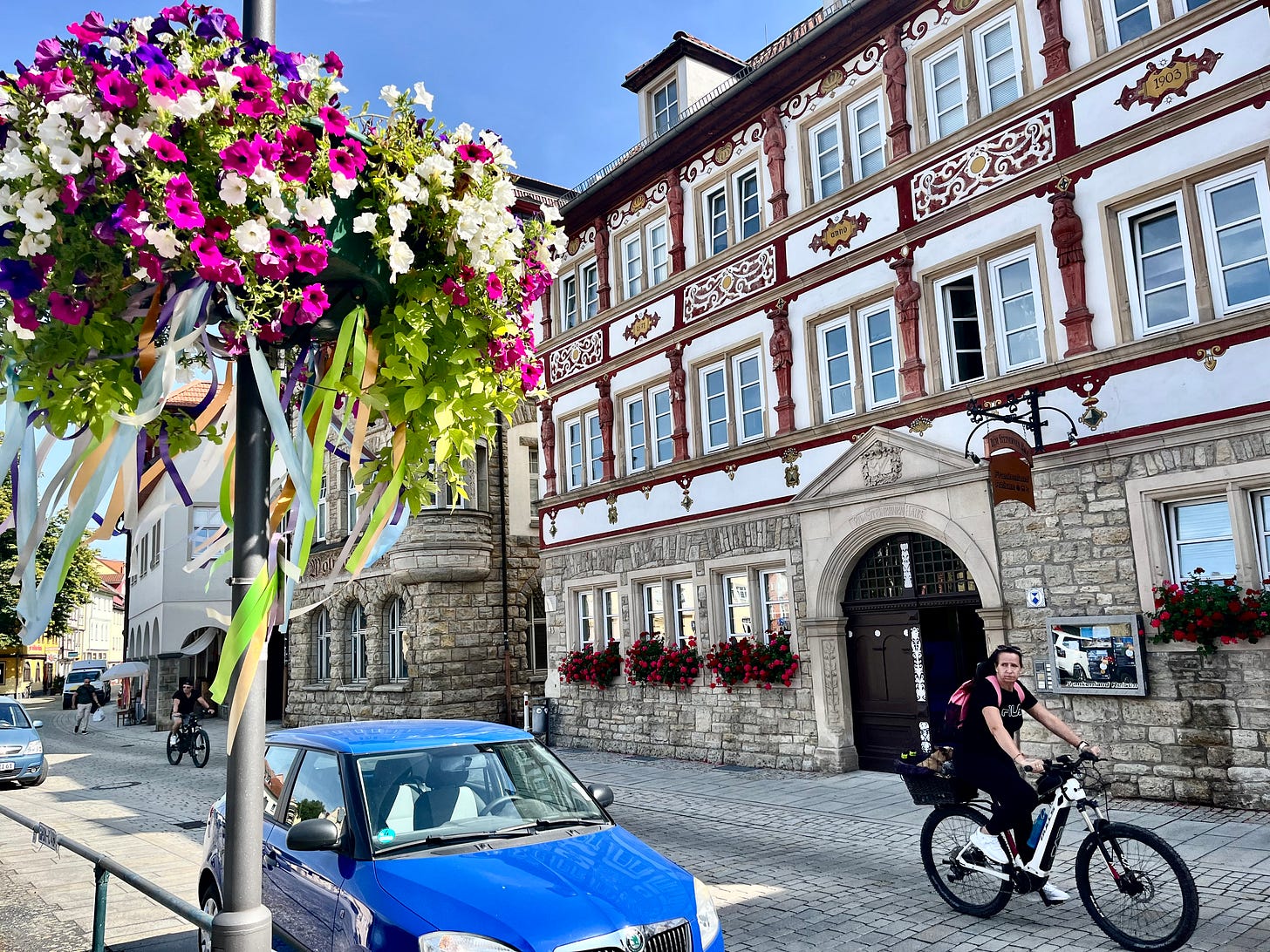Blooming landscapes in the east of Germany
#175
My Dear Friend of Democracy,
My father, born in 1936, was worried all his life that democracy in the Federal Republic of Germany could fail. He saw two dangers: one external (the threat from the communist Soviet Union) and one internal. Regarding the latter, he suspected that Germans could turn to extremist parties as soon as the economy went downhill.
I have been hiking through the German state of Thuringia over the past few days. I have seen blooming landscapes. People drive fancy cars. Their bikes are equipped with batteries. They use them to ride on newly built bike paths. The inner cities are beautifully decorated. The streets are wide and have no potholes. The rivers are clean. People are free to express their opinions. Life expectancy is increasing almost constantly. The unemployment rate is as low as in Germany as a whole.
Never before has prosperity been higher in Thuringia than it is today. Never since the 1930s have more Thuringians wanted an extremist to come to power than today.
In the state election on Sunday in a week in Thuringia, about half of those eligible to vote will vote for an unpleasantly populist party (Sahra Wagenknecht Alliance – Reason and Justice, short BSW) or a terribly extremist party (Alternative for Germany, short AfD).
There are many attempts to explain this behaviour. However, I am sure that if the Thuringians of 1990 – after the wall had come down – could have seen what their lives would look like in 2024, they would have found their future bright, so bright hard to believe. And if they had seen their predicted voting behaviour for the upcoming state election, they would have thought it was fake news.
My father, if he were still alive, would be astonished and probably sad.
See you in Europe,
Johannes



How is it that these blooming landscapes have not reached the hearts and minds of a significant share of the eastgerman population?
Stefan Mau in his book "Ungleich vereint - warum der Osten anders bleibt" offers a thorough attempt to answer this question.